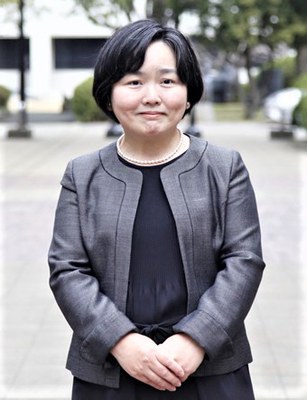Welcome to the School of Letters
Dean of the School of Letters
Asako Kurihara
 The School of Letters at Osaka University started in 1948 with three traditional domains: philosophy, history, and literature. The Department of Arts Studies, the only one of its kind in a national university, was established in 1973; the Department of Japanese Studies was established in 1986; and the Department of Cultural Dynamics, an interdisciplinary program, incorporating contemporary issues, was established in the Graduate School of Letters in 2007; the School of Letters continues to take on the challenge of extending new horizons in the humanities.
The School of Letters at Osaka University started in 1948 with three traditional domains: philosophy, history, and literature. The Department of Arts Studies, the only one of its kind in a national university, was established in 1973; the Department of Japanese Studies was established in 1986; and the Department of Cultural Dynamics, an interdisciplinary program, incorporating contemporary issues, was established in the Graduate School of Letters in 2007; the School of Letters continues to take on the challenge of extending new horizons in the humanities.
The School of Letters has been developed based on constant dialog between basic and applied research related to philological methodology and relevant disciplines. In 2022, the Graduate School of Letters will be merged with the Graduate School of Language and Culture to form a new Graduate School of Humanities with five majors: Humanities, Language and Culture, Foreign Studies, Japanese Studies, and Arts. Under the umbrella of the Graduate School of Humanities, the School of Letters will become an independent school.
With 20 programs, the School will continue to work closely with the Division of Humanities, the Division of Art Studies, and the Fundamental Japanese Studies course in the Division of Japanese Studies, to deepen and disseminate knowledge in the humanities, as it did in the past.
We are unknowingly trapped in the social norms of the times and society we live in, and we spend our days without questioning it. If we look at the world at large and revisit history, we will realize that what we take for granted has not been the norm in human history. By investigating the past, we can acquire deeper insight into the present. By studying ideas, tracing the classics, and enjoying the accumulated knowledge of the humanities, we can enhance our understanding, objectify, verbalize, and communicate the relationship between ourselves and others, the society in which we live, and ourselves. Studies in the School of Letters cannot prescribe immediate solutions to problems because the pursuit of the humanities involves perpetual questioning and reflections. However, studying the programs in the School of Letters will enhance the quality of your life.
The COVID-19 pandemic, which has been unsettling the world since the winter of 2019, has reminded us of the importance of science and technology. Simultaneously, in these times of crisis, many people have realized that art, culture, ethics, law, and economics are essential for sustaining human life, shaping social systems, and supporting the human spirit. Modern societies also face medium- and long-term challenges such as aging populations, fluctuations in family systems, gender, transnational migration, and conflict. To address these issues, we need an understanding of the current situation, which is supported by historical knowledge and ideological underpinnings. For example, in ancient Greece, which I study, aging and family relationships were important social issues. By objectifying the constraints surrounding modern society, it is possible to gain a bird's-eye view of the various issues facing modern society. We are now in a situation where we need to integrate cutting-edge technology with the humanities.
The 20 programs in the School of Letters contribute to their respective academic fields through the rigorous reading of literary texts, philosophical works, diaries, and administrative documents; the detailed interpretation of visual images such as paintings, architecture, and sculptures; analysis of ancient and modern music and theater performances, and various other methods such as excavations, interviews, and GPS analysis; use of big data, and fieldwork, give knowledge back to the local community and disseminate the results to the world through our various projects and programs with universities and institutes overseas.
The responsibility of the School of Letters is to inherit, develop, and transmit the knowledge of the humanities. Our hope is to nurture the next generation of researchers who will inherit this knowledge and develop it in challenging ways: this includes professionals such as curators, high school teachers, and editors who will be involved in the inheritance, development, and transmission of knowledge, so that knowledge of the humanities can be returned to society and made the foundation of civil society.
In Osaka, in the Edo period, there was an academy called Kaitokudo, “The House of Virtue," where both townspeople and samurai could study without distinction. I sincerely look forward to meeting you at the School of Letters at Osaka University, which treats this academy as its spiritual inspiration.
